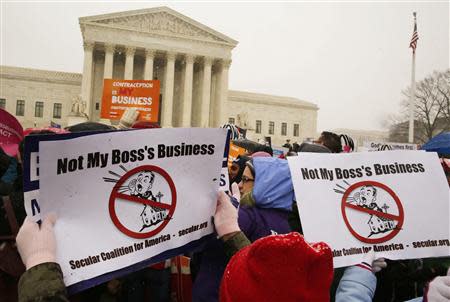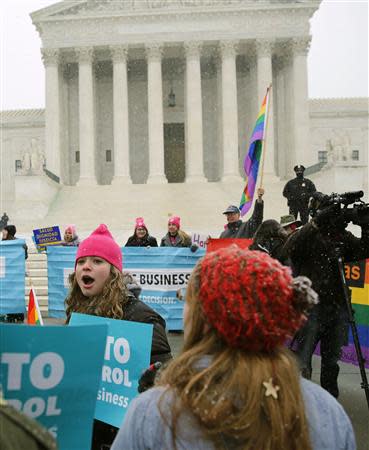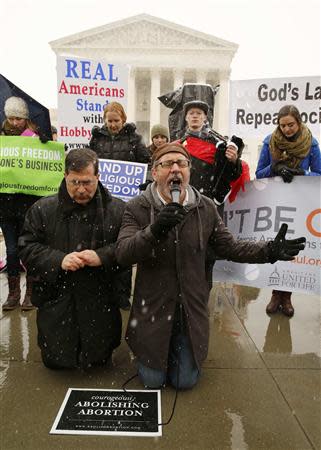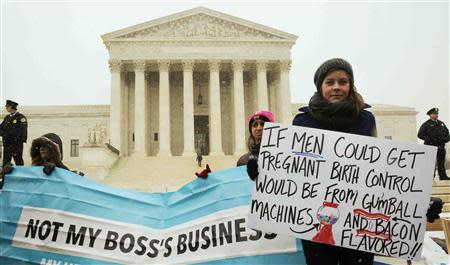Supreme Court signals support for corporate religious claims
By Lawrence Hurley WASHINGTON (Reuters) - The U.S. Supreme Court appeared poised on Tuesday to open the door to companies' religious-based objections to government regulations as justices weighed whether business owners can object to part of President Barack Obama's healthcare law. It was unclear whether the companies objecting to the regulation requiring them to provide insurance coverage that includes contraception would win overall, but a majority of the nine justices seemed ready to rule that companies had the same religious rights to object as individuals do. In one of the biggest cases of the year, the court heard an extended 90-minute oral argument, 30 minutes more than usual. A ruling is expected by the end of June. The dozens of companies involved in the litigation do not all oppose every type of birth control. Some object only to emergency contraceptive methods, such as the so-called morning-after pill, which they view as akin to abortion. The case pits religious rights against reproductive rights, with a heavy dose of politics added to the mix. A capacity crowd filled the marble courtroom, with many demonstrators chanting loudly outside. The challengers are arts-and-crafts retailer Hobby Lobby Stores Inc, run by evangelical Christians, and Conestoga Wood Specialties, which is run by a Mennonite family. Liberal-leaning justices and the government said that allowing companies to make claims could lead to a swathe of challenges to government regulations, from Social Security to health coverage for immunizations. The conservative members of the court did not seem convinced. Chief Justice John Roberts said the ruling could be limited to closely held companies. His conservative colleagues, including swing vote Anthony Kennedy, seemed to share the views of Roberts. Kennedy sharply questioned Solicitor General Donald Verrilli, the Obama administration's lawyer, over whether in a hypothetical situation a for-profit corporation, such as a medical provider, would not be able to object if the government required it to carry out abortions. Verrilli argued that the court would be "skating on thin constitutional ice" if it ruled for the challengers because of the impact it would have on employees. The cases are Sebelius v. Hobby Lobby and Conestoga Wood v. Sebelius, U.S. Supreme Court, No. 13-354, 13-356. (Additional reporting by Joan Biskupic; Editing by Howard Goller and Grant McCool)






